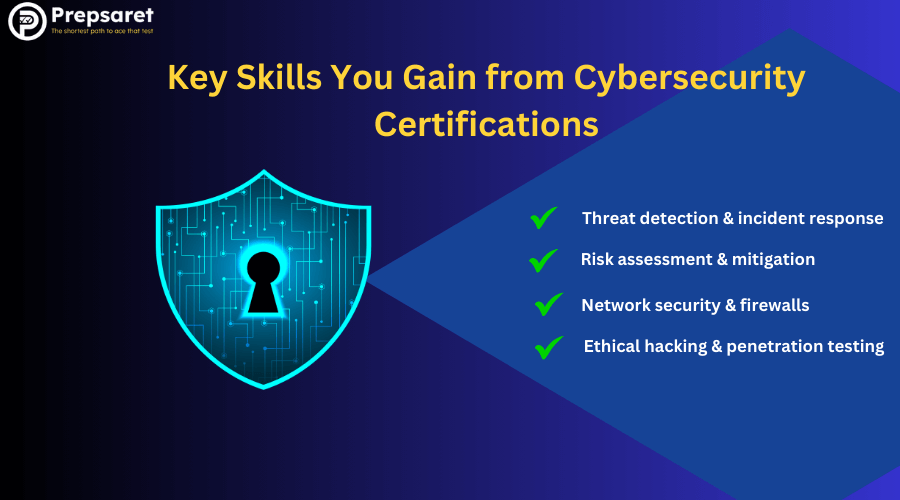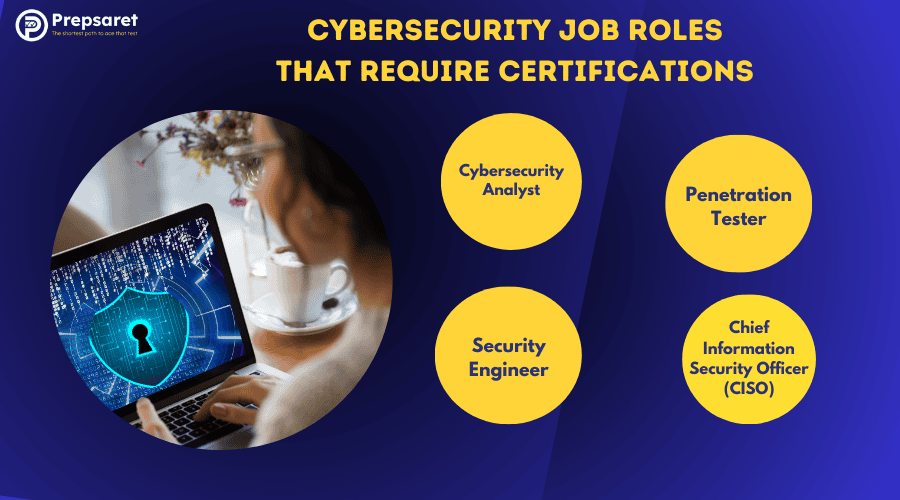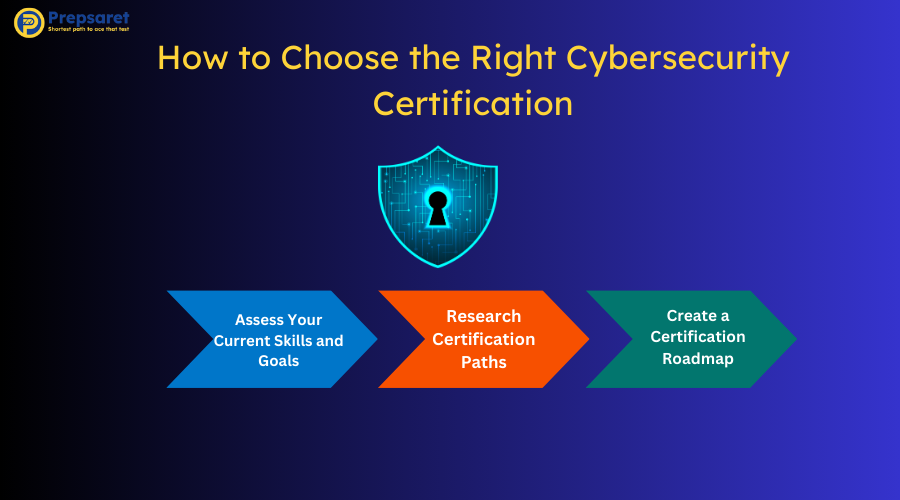Is Cybersecurity Certification Worth It?
Are you thinking about a career in cybersecurity? Or maybe you’re already in the field and wondering if getting certified is worth the time and money? You’re not alone.
Cybersecurity certifications have become a hot topic, especially in discussions on forums like Reddit, where professionals debate whether they provide a real advantage.
With cyber threats on the rise, companies are desperate for skilled professionals who can protect their systems and data.
Many professionals pursue cybersecurity certifications to boost their careers, validate their skills, and stand out in a competitive job market. But is a cybersecurity certificate enough to get a job?
Do employers actually care about them? And do certifications lead to a cybersecurity certification salary increase?
In this article, we’ll break it all down in simple terms. By the end, you’ll know whether cybersecurity certification is the right move for you. Ready? Let’s dive in.
What Is a Cybersecurity Certification?
A cybersecurity certification is an industry-recognized credential that proves you have the knowledge and skills needed to protect systems, networks, and data from cyber threats. Think of it as a stamp of approval from top cybersecurity organizations.
Certifications come in different levels, depending on your experience:
- Entry-level cybersecurity certifications: Ideal for beginners (e.g., CompTIA Security+, SSCP)
- Intermediate: Designed for those with some experience (e.g., Certified Ethical Hacker (CEH), CISM)
- Advanced: For seasoned professionals (e.g., CISSP, OSCP)
Some of the most respected organizations that offer cyber security certifications for beginners and advanced professionals include:
- CompTIA (e.g., Security+, CySA+)
- (ISC)² (e.g., CISSP, SSCP)
- EC-Council (e.g., CEH, CHFI)
- ISACA (e.g., CISA, CISM)
- Google Cybersecurity Certification
Why Cybersecurity Certifications Matter in the Industry
Cybersecurity certifications are more than just fancy letters after your name—they play a crucial role in the industry. Here’s why:
They Validate Your Skills
Certifications prove you have the knowledge to handle cybersecurity challenges. Employers want solid proof that you know your stuff.
They Help Meet Industry Standards
Many industries (finance, healthcare, government) require certified cybersecurity professionals to meet regulatory and compliance requirements.
They Make You Stand Out to Employers
Some job postings list certifications as a requirement. Having a recognized certification can give you a competitive edge in the job market.
Cybersecurity Certification ROI: Is It Worth the Investment?
One of the biggest concerns professionals have is whether a cybersecurity certification is worth the cost. This is where cybersecurity certification ROI (return on investment) comes into play. The right certification can lead to better job opportunities, higher salaries, and career advancement.
For example, earning CompTIA Security+ or the Google Cybersecurity Certificate can significantly improve your job prospects. Many entry-level cybersecurity jobs list these certifications as preferred qualifications.
Plus, certified professionals often earn more than their non-certified peers. According to industry data, a Cybersecurity Certificate salary can range from $70,000 to over $100,000 per year, depending on experience and location.
Key Skills You Gain from Cybersecurity Certifications

Getting certified isn’t just about passing a test—you’ll develop real skills that you can use on the job, such as:
- Threat detection & incident response – Learn how to identify and stop cyberattacks.
- Risk assessment & mitigation – Discover how to assess security risks and minimize threats.
- Network security & firewalls – Understand how to protect networks from intrusions.
- Ethical hacking & penetration testing – Some certifications (like CEH) teach you how to think like a hacker.
- Soft skills – Communication, problem-solving, and analytical thinking are crucial in cybersecurity.
Types of Cybersecurity Certifications: Which One Should You Choose?
With so many options, how do you pick the best cybersecurity certifications? It depends on your experience, career goals, and the job you want. Here are some popular choices:
- Beginners: CompTIA Security+, SSCP, Google Cybersecurity Certification
- Intermediate: CEH, CISM, CySA+
- Advanced: CISSP, OSCP, CISA
CompTIA Security+ vs. Other Entry-Level Certifications
For beginners, CompTIA Security+ is one of the most recommended certifications. But how does it compare to others like CEH or SSCP?
| Certification | Focus | Difficulty | Best For |
| CompTIA Security+ | General cybersecurity fundamentals | Moderate | IT professionals, career changers |
| CEH (Certified Ethical Hacker) | Ethical hacking & penetration testing | Harder | Aspiring ethical hackers, red teamers |
| SSCP (Systems Security Certified Practitioner) | Network & systems security | Moderate | IT admins, security analysts |
If you’re just starting out, Security+ is a solid choice because it covers a broad range of cybersecurity topics and is widely recognized by employers.
Related blog post: CompTIA Security+ vs CISSP
Cybersecurity Certification vs. Experience: What Matters More?
Now, this is where things get interesting. Do employers value certifications more than real-world experience? The answer is… it depends.
How Employers Weigh Certifications vs. Experience
- Entry-level roles: Certifications can help you stand out if you don’t have much hands-on experience.
- Mid-level roles: A mix of experience and certifications is usually preferred.
- Senior roles: Experience takes center stage, but high-level certifications like CISSP or CISM still hold value.
So, if you’re just starting out, getting certified can make a huge difference in landing that first cybersecurity job.
How Employers View Cybersecurity Certifications
Many companies, especially large organizations and government agencies, require cybersecurity certifications for hiring and promotions. Certifications show that you:
- Have verified knowledge of security concepts.
- Are committed to learning and professional development.
- Can meet industry or regulatory requirements (especially for government jobs).
For example, organizations like the Department of Defense (DoD) require Security+ for many cybersecurity positions. In the private sector, companies like Amazon, IBM, and Microsoft also look for certified professionals.
Cybersecurity Career Advancement: How Certifications Help
Cybersecurity is a fast-moving field, and certifications can help you advance your career. As you gain experience, earning certifications like CISSP, CISM, or OSCP can open doors to higher-paying roles, leadership positions, and specialized jobs.
Many professionals wonder, “Is Google Cybersecurity Certificate worth it?” or “Is cybersecurity certification worth it for beginners?”
The answer depends on your career goals. If you’re new to cybersecurity, an entry-level certification can help you break into the industry. If you’re experienced, advanced certifications can help you climb the career ladder.
How Cybersecurity Certifications Enhance Job Opportunities
Certifications can open doors to career opportunities that might otherwise be out of reach. Many industries require or strongly prefer certified professionals, as they serve as a cybersecurity skills validation tool that proves expertise in protecting digital assets.
With the increasing cybercrime industry demand in 2025, obtaining a certification is becoming more critical for job security in IT and cybersecurity-related fields.
Industries That Rely on Cybersecurity Certifications
Many sectors prioritize cybersecurity professionals with verified credentials due to the rising threats of cyberattacks:
- Finance and Banking – Protecting sensitive customer data and ensuring compliance with financial security regulations.
- Healthcare – Ensuring patient records stay secure while meeting HIPAA and other regulatory requirements.
- Government and Defense – Meeting strict security regulations to protect national security and classified information.
- Tech and Cloud Computing – Securing cloud infrastructure and online services against cyber threats.
Cybersecurity Job Roles That Require Certifications

Some common cybersecurity positions that often require or prefer certifications include:
- Cybersecurity Analyst – Often requires CompTIA Security+ or CEH (Certified Ethical Hacker), both of which are foundational IT certifications for cybersecurity professionals.
- Penetration Tester – CEH or OSCP (Offensive Security Certified Professional) validate ethical hacking expertise.
- Security Engineer – CISSP or GIAC certifications help professionals design secure IT systems.
- Chief Information Security Officer (CISO) – CISM or CISSP can demonstrate leadership in information security management.
Continue reading: Cybersecurity Jobs
Why Certifications Matter for These Roles
Cybersecurity certifications offer multiple advantages for professionals looking to advance in their careers:
- Job Security – Certified professionals are more likely to be retained during downsizing or restructuring.
- Career Growth – Many companies prefer promoting employees with certifications, as they indicate a commitment to professional development.
- Higher Salaries – Certified professionals tend to earn more due to their specialized knowledge and skills.
- Validation of Expertise – Certifications provide proof of competence, making job applications stand out.
Cybersecurity Certifications vs. Degree Programs
When planning a career in cybersecurity, one common question is whether to pursue a degree or a certification.
Cybersecurity certificates offer a faster and more cost-effective way to enter the industry, especially for those making a career change to cybersecurity with certifications.
In contrast, a degree provides broader knowledge but requires more time and financial investment. Many professionals choose a combination of both, using certifications to supplement their formal education.
Related blog: Cybersecurity Courses
The Cost and Time Investment of Cybersecurity Certifications
Financial Costs
The cost of cybersecurity certifications varies, and candidates should assess whether a certification is worth the investment. Here’s a breakdown of typical expenses:
- Exam Fees – Range from $150 (CompTIA Security+) to over $700 (CISSP, CISM).
- Study Materials – Books, online courses such as Prepsaret, and practice exams can add another $100–$500.
- Training Courses – Bootcamps and formal classes can cost anywhere from $1,000 to $5,000.
Time Commitment
How long does it take to get certified? The timeline depends on the certification level and prior experience. Here’s an estimate for some common cybersecurity certifications:
- CompTIA Security+ – 2 to 3 months (100–150 study hours)
- Certified Ethical Hacker (CEH) – 3 to 4 months (150–200 study hours)
- CISSP (Certified Information Systems Security Professional) – 4 to 6 months (200–300+ study hours)
Some certifications require work experience before candidates can qualify for the exam, adding to the time investment.
How to Choose the Right Cybersecurity Certification

Selecting the best certification depends on career goals, experience level, and industry demands. Key considerations include:
- Entry-Level Professionals – Start with CompTIA Security+ or Certified Ethical Hacker (CEH) to build foundational knowledge.
- Cloud Security Careers – Consider CCSP (Certified Cloud Security Professional).
- Penetration Testing – OSCP is highly regarded for ethical hacking and penetration testing roles.
- Leadership Roles – CISM or CISSP are ideal for managerial positions.
Read on: Cybersecurity Certification for Beginners
Common Challenges in Earning a Cybersecurity Certification
Getting certified isn’t just about passing an exam. Candidates often face challenges such as:
- Technical Knowledge Gaps – Beginners may find cybersecurity concepts complex. Starting with online cybersecurity certifications like CompTIA Security+ can help build foundational knowledge.
- Complex Exam Content – Certifications like CISSP require knowledge of both technical and management principles.
- Time Constraints – Balancing study time with work and personal responsibilities can be challenging.
Tips for Overcoming These Challenges
- Use online courses with hands-on labs (e.g., Cybrary, Udemy, Coursera).
- Join cybersecurity communities on Reddit or Discord for support.
- Take multiple practice exams to get comfortable with the question format.
Try this out: CompTIA Security+ Test Prep
Future Trends in Cybersecurity Certifications and Job Market Demand
With cybersecurity threats rising, the job market for certified professionals is expanding rapidly. Here’s what’s expected in 2025:
- Advantages of Cybersecurity Certifications in 2025 – Employers increasingly prioritize certifications to verify candidates’ skills.
- Cybercrime Industry Demand 2025 – Global cybercrime damages are projected to reach $10.5 trillion annually, driving demand for skilled cybersecurity experts.
- Growth of Online Cybersecurity Certifications – More institutions are offering flexible, self-paced certification programs, making it easier for professionals to upskill.
- Stricter Regulations = More Job Opportunities – Compliance with laws like GDPR, CCPA, and NIST Cybersecurity Framework is creating new security roles.
Final Verdict: Should You Get a Cybersecurity Certification?
So, is cybersecurity certification worth it? The short answer: Yes—if you choose the right certification for your career goals.
- If you’re a beginner, start with CompTIA Security+ or the Google Cybersecurity Certification.
- If you’re aiming for cybersecurity career advancement, go for CISSP, CISM, or OSCP.
- If you want a higher salary, certifications can help—but experience matters too.
Ultimately, cybersecurity certifications can provide a strong return on investment, helping you stand out to employers, meet industry standards, and increase your earning potential.
Find out: How Long Does It Take to Prepare for CompTIA Security+?
FAQs
Yes, you can secure entry-level cybersecurity jobs with just a certificate. Roles like IT technician or security analyst are accessible, but higher-level positions often require additional education. Certificates are a strong starting point for career progression. The best cybersecurity certification depends on career goals. CompTIA Security+ is ideal for foundational knowledge, CISSP for managerial roles, and OSCP for penetration testing. Certifications like CISM and CCSP are suitable for advanced positions in management and cloud security. Cybersecurity involves applied math, focusing on areas like cryptography and risk assessment. It requires knowledge of discrete mathematics, probability, and linear algebra. However, professionals use practical math skills rather than advanced theoretical expertise. Salaries with cybersecurity certifications vary by role and experience. Entry-level positions may earn $50,000–$70,000 annually, while advanced certifications like CISSP can lead to salaries exceeding $120,000. Factors such as location and industry influence earning potential. Cybersecurity is a legitimate career offering stability and growth due to increasing cyber threats. It provides diverse opportunities in technical and managerial roles, contributing to critical aspects of digital security worldwide. The field is highly respected and in constant demand. Can You Get a Cybersecurity Job With Just A Certificate?
Which Cyber Security Certification Is Best?
Is Cybersecurity A Lot Of Math?
How Much Can You Earn With a Cyber Security Certificate?
Is Cybersecurity A Legit Career?

